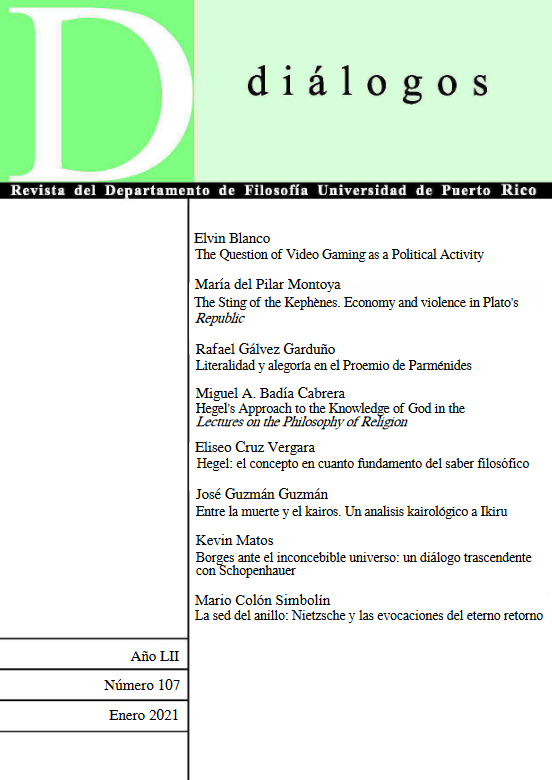Abstract
The eternal return of the same is one of the most important and problematic ideas of Nietzsche's philosophy. In Nietzsche‘s work, this idea is presented as an unusual experience that bursts into the 'loneliest loneliness‘ of the individual. Furthermore, it is significant that Nietzsche considered this singular experience in Ecce Homo as the origin of his fundamental conception of Thus Spoke Zarathustra. We could then suggest that the eternal return was one of the most profound and decisive singular experiences (Erlebnissen) in the development of Nietzsche‘s thought. Furthermore, it is conceivable that Nietzsche's effort to communicate this idea in the form and style set forth was intended to evoke some kind of extraordinary experiences in the reader. This evocative approach offers the opportunity to access the meaning of this experience without the limitations inherent in any analytical and systemic endeavor. Therefore, the purpose of this writing will be to comprehensively expose the experiences of the eternal return of three authors who avoid reducing the eternal return and instead chose to express their experiences literary and philosophically: Jorge L. Borges, Eugenio Trías and Manfred Kerkhoff.

This work is licensed under a Creative Commons Attribution-NonCommercial 4.0 International License.

